Inside a conversation with Stephanie Ruhle
As a part of the media, Stephanie Ruhle works to produce the true news and encourages creating a positive environment to promote learning and growth.
For MSNBC anchor Stephanie Ruhle, the news is not just about information. Originally starting her career in finance, Ruhle has found that what she loved about banking is the same thing she loves about her current job in the media; the news has the ability to impact daily lives.
During her college years, Ruhle studied abroad and the way she was able to do so was through an internship with an international bank. “I had always wanted to work in media my whole life, even before I got into banking. I sort of fell into banking out of undergrad because I had spent two of my four undergrad years studying abroad, and I wanted to stay living abroad. That’s sort of how I got into banking; I got an internship with an international bank, and I thought that would be a great way for me to stay working outside the U.S. because I got bit by the travel bug. For me, what I love so much about banking, is the same thing I love about the news business: while you’re asleep, news is happening on the other side of the world, [that’s] going to directly impact your workday when you wake up,” Ruhle said.
After she graduated, Ruhle began working in banking in New York City. During her career, the financial crisis took place, changing the banking industry. “After the financial crisis, I thought a lot about what I did for a living. After the crisis, the banking industry changed a lot, at the time, I had two little kids at home, and I thought this is a job, but I don’t know that it’s a career, I don’t know that it’s something I want to keep doing, that I believe in and if I am going to be away from my kids all these hours, I want to do something I love. I did have the financial freedom to possibly pursue a dream,” Ruhle said.
Ruhle knew it was uncommon for people to pursue another dream when they already have a job that is going well, but as Ruhle began doing speaking engagements to encourage young women to go into the male-dominated and high paying industry of finance, she continued to think about how much she wanted to be in the media. “One day, I was doing a speech for a nonprofit called The White House Project, and after the founder and the CEO had all the advisory members sitting around, and she was talking about women’s leadership and how we spend a lot of time helping women get into business and stay in business after [they] have children, but we’re not doing enough to get women to the absolute top of their field. She said, ‘I want everyone to think about what do you want to do next, and I want someone else in our senior network to get you there. We see men do this all the time for one another…’ I came back and [said] ‘you know, I always wanted to work in the media…’ There was a woman in our network, whose name was Melinda Wolfe, and oddly enough, she ran human resources for Bloomberg Television,” Ruhle said.
After sitting down with Wolfe, Ruhle met with then-head of Bloomberg Television, Andy Lack. Lack helped Ruhle realize news anchors did more than read the teleprompter, he showed they have to care about the content. “I said [to Lack] ‘I really think I could be that person. But for me to take such a huge career leap, I need you to do more than just give me any kind of job offer. I need you to give me a show to anchor and I need you to hire somebody to teach me how to be on television.’ I was very fortunate, Andy said ‘with your kind of finance background, not many of us here have that, I’m willing to take the risk…’ The rest is history,” Ruhle said.
I had always wanted to work in media my whole life, even before I got into banking.
— Stephanie Ruhle
On her first day of work at Bloomberg, Ruhle only knew one thing about working on television––if you book the guest, you get to interview them. The weekend before she started work, she was on an email thread where they were looking for a source to discuss the finance issue of the time. Ruhle suggested a source and was able to book her. That Monday, before she even finished her HR training, Ruhle showed up at work at 6:00 AM for the morning show and got to do the interview. “For me, it was that moment that I knew… I really love doing this. It was so exciting, so much fun, and it was sort of off to the races,” Rhule said.
Ruhle stayed at Bloomberg for five years. “It was especially exciting for me my last year; it’s when Mike Bloomberg left office, and so I got to work with him and as both a business person, a political leader. He was such an extraordinary guy. During my time there, I got to make a documentary about Haiti five years after the earthquake, and they had received $13 billion in aid, but if you know much about Haiti, you wouldn’t think they got a dollar, I mean it’s still a country in peril. While I was there, I also made a short form documentary on ocean conservation, which I did with Bloomberg, but I also did it with Fusion, which was really exciting… But about two years ago, I decided it was time for me to take the leap and leave business news and join NBC, where my daily shows are rooted in politics,” Ruhle said.
Now working at MSNBC, Ruhle hosts MSNBC Live with Stephanie Ruhle and is a co-host on Velshi & Ruhle. After her transition to MSNBC, Ruhle did lots of studying. On the advice of the president of NBC, she read and watched everything she could. “Locking myself away and studying and observing and listening has proven to me a lot more valuable because TV is a place that is rather unforgiving. When you’re doing it on air, that tape that exists forever. Having the ability to watch, trust me I make mistakes all the time, was really beneficial for me, and as many great ideas we think we have––something I’ve definitely learned in the last couple of years covering politics––the most powerful thing you can do is listen. As soon as you start speaking, you are losing power, you’re giving away your goods…The more time you spend actually taking it all in, I think that’s where the value is. Something I learned, something I’m still learning, we are all quick to speak and get our ideas out and show the world we know what we’re talking about, but when you’re actually listening there’s a greater chance you’re going to increase your ability to know what you’re talking about, because you’re learning more,” Ruhle said.
In preparing for MSNBC Live with Stephanie Ruhle, it is a collaborative effort to decide what goes on air. Normally it is the news of the day and the big stories and members of Ruhle’s team always get a say. Each providing a unique perspective, especially some of the most junior members of her team. The night before the show, they go through what they believe will be a general outline and early in the morning they go through it and include some stories that Ruhle is passionate about: such as the advancement of women and girls or education. Ruhle always makes sure to end her show on a positive note with the segment Good News Ruhles. “Everyday, when we look at what we’re going to cover, we ask ourselves, ‘Does this make our audience smarter, better, and more prepared for their day? Will the information they take away help them connect with their co-workers, their spouse, their children, their friends?’ And that’s sort of my goal. Sure, we are covering tough news and bad news all the time, but with the goal that we’re making our viewers better,” Ruhle said.
Working for MSNBC, which has come under fire by the President as “fake news,” Ruhle still believes it is their purpose to go on air and tell the truth. “Right now, there is [a need to] be responsible, tell the truth, and sort of resist the urge to just gab. I learned that as soon as I went to Bloomberg. What you say at a cocktail party or among your friends is very different than what you should say on television or in print. I learned it in business news because if you’re quick to sort of lean back and just start gabbing, you could move markets, you could impact companies, you can impact share prices. That’s a big deal. Now that we are covering politics, it’s very, very easy to get carried away. I’ll be the first to say that there are definitely times that I’ve gotten over my skis, or I’ve made mistakes, but I try pretty hard to be disciplined. People who say all the time ‘News is so fake’ and there’s such a negative bias, I don’t know that I think there’s a negative bias, but we do fact check every day… The economy is the perfect example, the economy is doing very, very well, but if you look at [the other night’s] State of the Union, the President was not entirely honest about his investment of the economy… [He said] during his presidency over five million jobs were created and the answer’s actually over four million jobs. Over four million is still a great number, but it’s my job to fact check,” Ruhle said.
As for the next generation of young women interested in going into finance or media, Ruhle does have advice. “Do your homework. One thing that I regret, at least when I was younger in my career, especially in finance, I was in such a rush. I was in such a rush to get ahead, I was in such a rush to win, I wish I had spent more time when I was young listening, learning, and studying. Instead, I was in such a race to go out on my own, to build a book of business, to be super competitive. While you’re young, you have a cushion, whether you work at a news organization, or a bank, and you’re in a training program or page program, where you can just learn. While you have that cushion, before your company has their arms folded and their saying ‘Alright lady, what are you going to deliver?,’ before they’re demanding for you to deliver, take the opportunity to learn as much as you can. I didn’t get my MBA, so I was always playing a little bit of catch up in banking. I obviously didn’t go to journalism school; I don’t have a long background in media, so I’ve always been playing catch up. But I would say listen and learn as much as you can, no matter how competitive you are, no matter how much you want to get ahead, be good to the people around you. When you create a positive work environment, even if you’re the most junior person there, when you create a positive work environment, people want to work with you, they want to be around you. If you’re a positive force and you are light, it makes the whole work environment and your work family. You should hope that work environment you’re in, you’re creating a family and a unit. It really helps everyone succeed,” Ruhle said.
MSNBC Live with Stephanie Ruhle airs weekdays 9 AM EST and Velshi & Ruhle airs weekdays at 1 PM EST on MSNBC.











































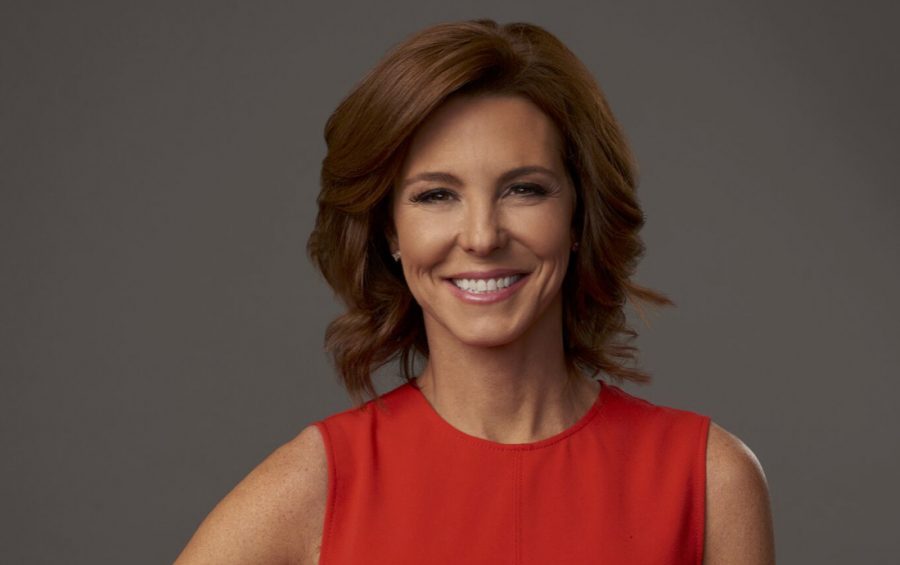
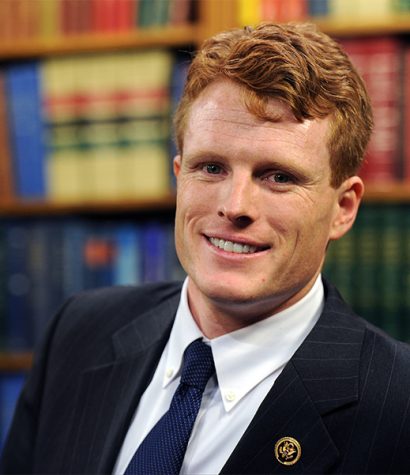
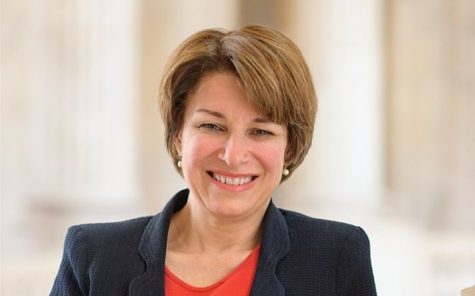
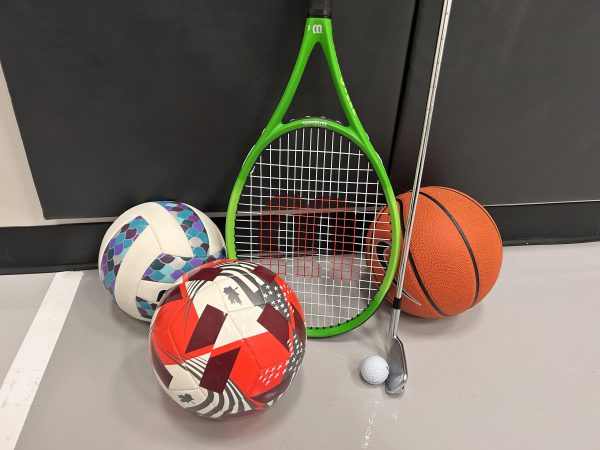


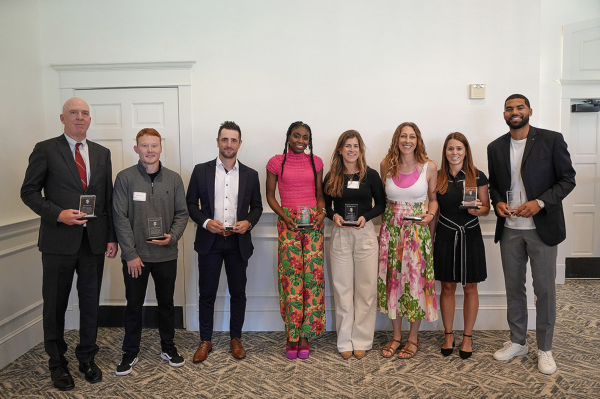


Allen Cohen • Feb 19, 2019 at 5:34 pm
Great & powerful interview very enlightening
. Stephanie is a very feisty direct women. She does’t stand for nonsense. Which is wonderful.